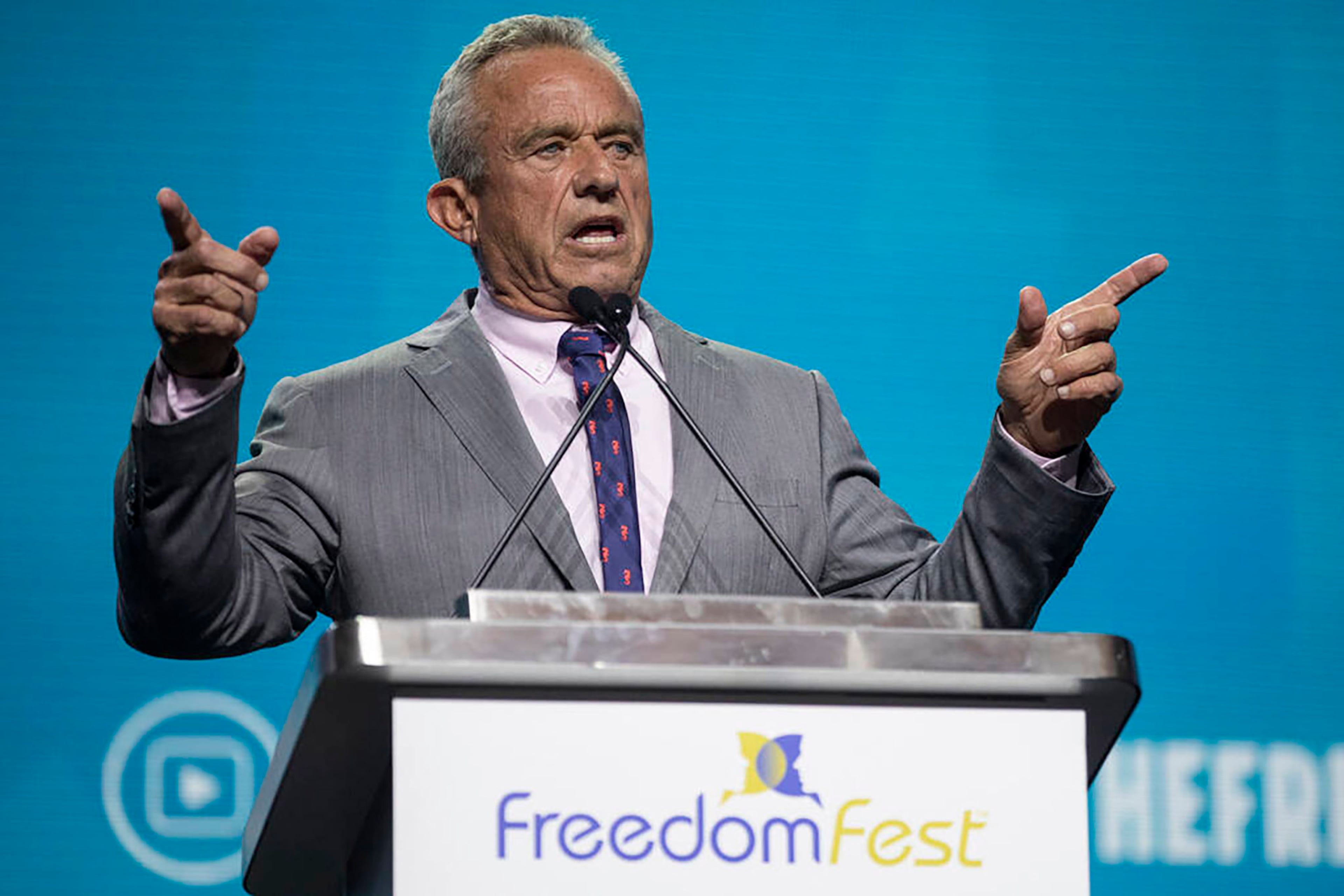Georgia revenue off to a good start after a slow fiscal year

Georgians buy more stuff, fueling increase in sales tax collections
Georgia consumers shelled out more money in July than they did a year earlier, and the state saw its sales tax collections climb.
That boosted the state’s revenue take for the second straight month after going through a slow fiscal year.
Overall collections were up in July by 2.7% over July 2023.
Gross sales tax collections were up 4.5% in July, and the state saw a 28.4% increase in what it took in for corporate income taxes. Individual income taxes, however, were down slightly in comparison with July 2023.
This bump in revenue comes after a weak fiscal 2024, which ended June 30. Collections over that 12-month period were down 0.5%.
The good news is that Gov. Brian Kemp projected a much bigger drop, closer to 7%, and that set a cap on how much lawmakers could appropriate during the legislative session that ended in March. As a result, the state, as it has for the past three fiscal years, will bank billions of dollars in surplus funds.
Kemp is also projecting a slow rate of growth, 1.7%, for the fiscal year that began July 1.
Part of the reason is the state lowered the income tax rate — which will mean a smaller tax bill for many and possibly less money for the government.

Cobb to charge fee for challenging voters’ eligibility
Filing challenges to voters’ eligibility will now come at a cost in Cobb County.
The county’s Board of Elections voted 4-1 to charge challengers to cover Cobb’s expenses for notifying voters that their ability to cast a ballot is being questioned.
The county saw 2,472 challenges last month, and Elections Director Tate Fall estimated that cost county taxpayers $1,600.
Cobb County Republican Party Chair Salleigh Grubbs blasted the board over the new fee.
“It is your job to ensure we have clean voter rolls,” Grubbs told the board, “and you’re not doing your job.”
The board’s attorney, Daniel White, compared passing along notification costs to fees associated with serving a lawsuit.
The election boards in DeKalb and Gwinnett counties have discussed charging similar fees.
This year, the Republican-dominated General Assembly passed a law allowing citizens to challenge an unlimited number of voters. It was just the latest of numerous election laws legislators have passed after Donald Trump blamed his loss in the 2020 presidential election in Georgia on voter fraud, even though numerous investigations and court cases debunked those claims.
Conservative activists have contested the eligibility of more than 350,000 voters across the state since the 2020 general election. The overwhelming majority of challenges have been dismissed by county election boards, but more challenges are expected ahead of November’s presidential election.

Petition drive aims to block water plan for Hyundai site
Bulloch County residents have launched a petition drive seeking to block the drilling of four wells that would provide water to Hyundai’s EV and battery factory now nearing completion in neighboring Bryan County.
The 16-million-square-foot Hyundai Metaplant, under construction in a rural area about 25 miles west of downtown Savannah, will rely on lots of nearby water to operate.
Production could begin as soon as Oct. 1 at the plant, which is expected to employ 8,500 workers once construction is completed later this decade.
The petition push, led by a group called the Bulloch Action Coalition, is meant to trigger a pair of votes allowed under the citizens’ referendum clause of the Georgia Constitution. Similar initiatives led to a 2022 referendum in Camden County that blocked a proposed spaceport and a vote scheduled for Oct. 1 in McIntosh County that seeks to overturn a zoning ordinance change passed last year that allows for bigger houses on Sapelo Island.
Opponents of the proposed wells are concerned that they would lower levels in the Floridan aquifer enough to cut off their water supply. The four planned wells are proposed to draw as much as 6.6 million gallons of water a day, and an agreement signed by the Bulloch County Commission in June cites the potential for two additional wells.
Officials with the Savannah Harbor-Interstate 16 Corridor Joint Development Authority — which manages the factory site in coordination with the state — said they remain confident the water commitments made to Hyundai will be fulfilled.
Democrats’ formula for statewide success evolves
It’s not as dramatic as the switch to New Coke, but the formula for statewide Democratic victories has changed.
The 30-30 rule, as it’s known, is now more of a guideline.
The rule was that, in order to win, Democrats needed to attract 30% of the white vote and Black voters had to account for 30% of overall turnout. Part of what made it work was that nearly all Black voters in the state vote Democratic.
Now, it’s not as necessary as before for Democrats to hit 30 and 30.
In the 2020 presidential election, for example, Black voters were responsible for 27% of the ballots cast in Georgia, and Joe Biden drew the support of 29% of white voters. He still won, even though it was a narrow victory of less than 12,000 votes.
What changed? Georgia.
It’s not as Black and white as it used to be.
Hispanic and Asian American voters are seeing their share of the electorate growing.
In 2008, the two groups made up roughly 2% of Georgia’s voters in the presidential election. In 2020, that grew to 5%.
“The small changes in the size of the Latino and Asian population, small changes in the rate of Democratic support from Black voters, are the difference between winning and losing,” Emory University political scientist Bernard Fraga said.
It’s still not a surefire rule. Hispanic and Asian American voters lean Democratic, but not as strongly as Black voters, according to a nationwide study by the Pew Research Center. While over 80% of Black voters align with the Democratic Party, roughly 60% of Hispanic and Asian American voters do.

State Election Board member says he didn’t seek Trump administration job
The Guardian reported that State Election Board member Rick Jeffares offered himself for a position in a potential second Trump administration.
Jeffares, a former state senator, said that’s not exactly what happened. He said that during Donald Trump’s first term as president, he turned down a job as a regional director for the Environmental Protection Agency. Now, he’s mentioned to friends that he’d consider the job.
He said he “didn’t talk to anyone in the Trump administration,” and that he never formally requested the job.
If Jeffares formally sought the job, that could be problematic given his work on the election board. Jeffares has been part of a three-member majority that drew a shoutout from Trump during his recent Atlanta rally for a series of recent votes, including one to reinvestigate Fulton County’s handling of the 2020 recount and another approving a rule that could give partisan county election board members more leeway to question the outcome of votes.
Speaking for himself and the two other board members who drove those votes, Janice Johnston and Janelle King, Jeffares said, “It’s been a hardship on us ever since Trump mentioned us at the rally.”
He added: “How the rumor got started that I would join the administration is beyond me. It’s all just to make us look like criminals. I have emails and voicemail messages that would make you blush.”
A spokesperson for longtime Trump aide Brian Jack, whom The Guardian identified as the person Jeffares spoke to about a job, said he can’t recall any conversations with Jeffares.
“But his position has been crystal clear: Anyone lobbying for a role in a future administration is only hurting President Trump and themselves, and distracting from the campaign before us,” said the spokesperson for Jack, who is now a candidate in Georgia’s 3rd Congressional District.
Democrats quickly jumped on the report. Lauren Groh-Wargo, the director of the Fair Fight political organization founded by two-time gubernatorial candidate Stacey Abrams, said it raises “serious ethical concerns.”

Independent candidates for president clear a hurdle
Secretary of State Brad Raffensperger said this past week that three third-party or independent presidential candidates appear to have submitted enough signatures to qualify for the Georgia ballot.
Robert F. Kennedy Jr., Cornel West and Claudia De la Cruz each submitted more than the minimum 7,500 nominating petition signatures necessary to appear on the ballot, although just barely for De la Cruz, the nominee for the Party for Socialism and Liberation.
The three, however, still face legal challenges about their eligibility to appear on the ballot. An administrative law judge will hold hearings on the challenges in the coming week.

Hayes family says if Trump uses song, he can’t expect to ‘Hold On’ to his money
Hold off on the “Hold On” — the Isaac Hayes estate is coming.
The family of the famous performer and songwriter — and a resident of Atlanta for decades — sent a legal notice to Donald Trump’s campaign and the National Republican Committee demanding that they stop using the R&B classic “Hold On, I’m Coming” at his events and pressed them to pay $3 million for prior usage.
In the letter, the Hayes family details more than 130 times Trump and Republicans played the song, a hit for Sam and Dave in 1966 but written by Hayes and David Porter.
Hayes’ son Isaac Hayes III said the family also plans to file a federal lawsuit accusing Trump of 134 counts of infringement at campaign rallies since 2022.
Other artists who have complained about Trump’s use of their music could fill their own wing of the Rock ‘n’ Roll Hall of Fame, including the Rolling Stones, Bruce Springsteen, Queen, Neil Young, Rihanna and Ozzy Osbourne, as well as the estates of George Harrison, Prince and Sinead O’Connor.

Other state reps were riding with Seabaugh when he was charged with DUI
When state House Rep. Devan Seabaugh was arrested on charges of drunken driving, passengers in the Marietta Republican’s car included two other legislators and a staff member of the House GOP caucus.
A caucus spokesman acknowledged via social media that Republican state Reps. Jordan Ridley of Chatsworth and Holt Persinger of Winder were riding in the car when Seabaugh was stopped.
According to reporting by The Marietta Daily Journal, Seabaugh refused a field sobriety test after police say he struck a cyclist with his vehicle while driving in Grant Park on Aug. 8.
He was cited on charges of driving under the influence of alcohol, driving under the influence of drugs and five other infractions. Seabaugh said on social media over the weekend that he was not drunk and has never used drugs.
Political expedience
Airing it out: The ad-tracking firm AdImpact Politics reported that former President Donald Trump’s campaign purchased nearly $24 million of airtime devoted to Georgia as part of a larger ad buy of $37.2 million.
Honoring Massey: U.S. Reps. Sanford Bishop, D-Albany, and Buddy Carter, R-St. Simons Island, have filed a bill that would rename the U.S. Department of Agriculture National Poultry Research Center in Athens after Francis “Abit” Massey, who died in June at age 96. He was president emeritus of the Georgia Poultry Federation and a legendary poultry industry lobbyist. Every other member in Georgia’s U.S. House delegation signed on as co-sponsors of the bill except for U.S. Rep. Andrew Clyde, an Athens Republican.



